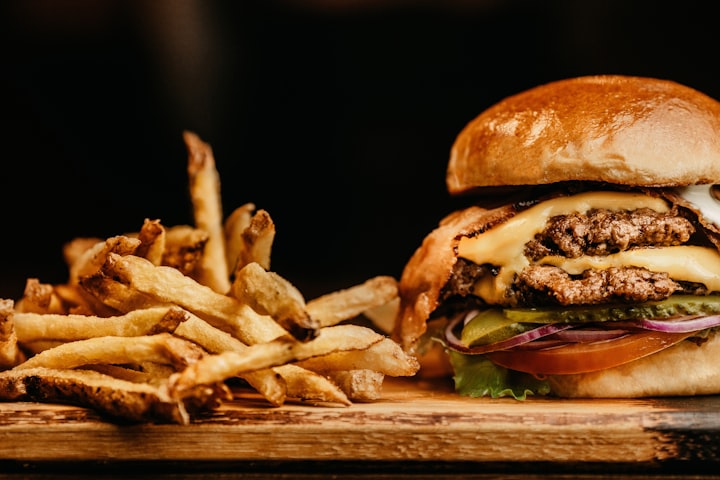Businesses are Making Fortunes, Thanks to Our Habits
The worst part is you are paying to get addicted.

Do you take decisions consciously when stopping at McDonald’s or order that new iPhone or signing up for a streaming service that will charge your card every month?
Table of Contents
- – How habits work?
- – Fast-food chain tactics
- – Conclusion
Over the years, businesses have changed how they business. Most companies spend millions of dollars researching the behaviours of people and how they can sell their products to us.
This does not stop here. As these giants want to keep selling products to us and make money, they keep on cultivating different methods to make us buy things unknowingly.
They create new habits among many people to keep making money. They keep us in a habit loop and fulfill the craving for certain physical pleasures related to status, charm, hunger, daily needs, and many more.
I am writing this post to put a light on some dark patterns in the business world. My intentions are not to harm any business or to offend anyone. My goal is to make people know how they get into habit loops, sometimes making their lives worse than hell.
How do Habits work?
If you do not know the concept of cue-routine-reward, let me brief you. Our brain learns daily routines subconsciously over a period of time. It eventually becomes a habit.
A cue is something that gets you to do a particular task. An example of it is, as soon as you get home you take a shower or when you wake up in the morning you go for a walk. When you see pictures of french fries, and you start craving for it, is also a cue.
Routines are the tasks that we do once we see a cue. It can be working out as soon as you wake up or as simple as eating french fries. It is basically a task by doing which you will get some reward.
The reward can be anything that you give to yourself, or it can be fame, physical pleasure, emotional pleasure, or rush of happy hormones in your brain.
The trinity, cue-routine-reward creates a habit loop over time. It is used by mentors to change the habits of their aspirant students or their clients. Sports coaches use it on their players to make them fast and react the fastest using their subconscious habits on the battlefield. Giant businesses use it to sell their products to us whether online or offline.
Fast Food Chains Tactics
We live in times when fast-food chains are the most important part of our life. If I talk about myself, I am a big foodie and I mean junk foodie. We all love the quick food that has been served by huge fast-food chains like McDonald's, Subway, Burger King, Starbucks, and let us not forget the healthy guy — Taco Bell.
These all the fast-food chains are businesses, and they all want to sell food to us. The only way you will eat at them if they create habit loops in you. And let us discuss how do they do it.
1. The Fast-Food Chains looks The Same
All McDonald’s look the same all around the world. The same is with other fast-food chains. Subway is greener everywhere. You may ask why is it so?
Remember we talked about the cue!! If this is the first time of yours at a Subway then your brain now will associate the green color with Subway. Our brains connect the dots subconsciously. It has mapped the green color with the activity of eating at Subway.
Now when you see a structure of a Subway restaurant with the famous green color then the brain will associate it with the craving for food. Of course, the craving does not develop in 2–3 visits. It takes more than that, but it will be a habit over a period of time, and you will never know it unless observed granular.
2. They Have Kitchens That You Can See & Smell
All these fast-food chains have almost a common thing with the kitchens is that you can see employees assemble your burgers and subs. And why would they have it?
Well, as soon as you come in, to give your brain a quick cue using smell is why the kitchens are made that way. They want you to smell and increase the craving for fast food.
3. The Dopamine Rush
As we consume fast food our brain will feel a sense of pleasure, and in reward releases the happy hormone called dopamine. You can be addicted to dopamine very easily and the companies know it very well.
Dopamine is the reason most people get into the habit of eating more and more junk food. As the craving emerges it is hard to change the habit. Our habits help businesses make millions.
Drive-Thru: They Want to Sell As Fast As Possible
When you are driving by the city, and you see a fast food structure the basal ganglia in your mind kicks in, and you automatically drive towards the eatery.
Now to make the process fast and give you the junk food as fast as possible, they have implemented the idea of a drive-thru. Businesses want to shorten down the path between the cue and the reward because it strengthens the craving.
Conclusion
They know it is addictive food, they know it will harm you in the long run but just to make money they are ready to put your health at stake.
Well, being a science student I have an elective in psychology. I have learned, if you form habits like these over time, you are more likely to get into more habits very easily. It will affect your productivity and how you will do in your life.
I am not saying it is all bad, but most people can not control themselves because the businesses structure it that way. In the end, your life is in your hand. Do not let your brain get cluttered with all the tactics.
Those were some of my opinions and what I felt about how businesses make us do what they want us to do. Thank you for reading.
About the Creator
Sahil Patel
Writer, poet, blogger and student of life. Want to make world a better place to live by writing. passionate observer and imaginative person.






Comments
There are no comments for this story
Be the first to respond and start the conversation.